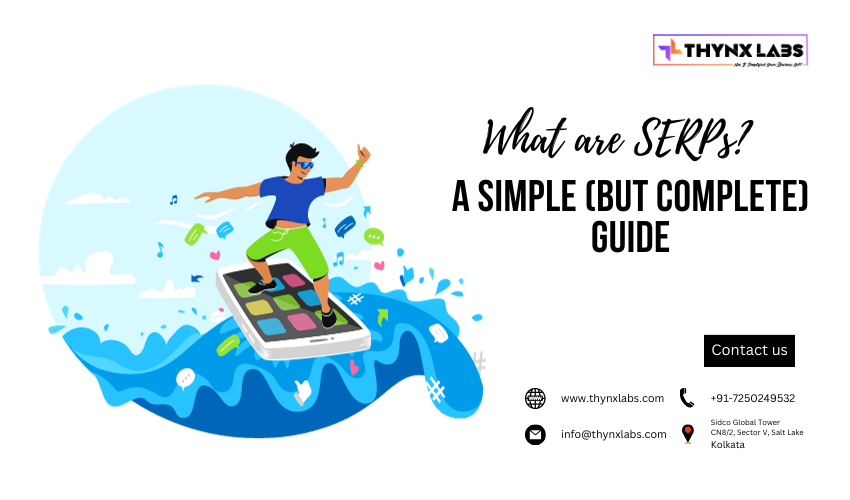The 3 Easiest Ways to Get Big SEO Results
Search engine optimization (SEO) is a complex and ongoing process that involves a variety of techniques and strategies to improve your website's visibility and ranking on search engine results pages (SERPs). While there are no shortcuts to achieving long-term SEO success, there are some easy and effective tactics that can produce quick results.
In this article, we will discuss the three easiest ways to get big SEO results for your website.
1. Optimize Your Meta Tags
Meta tags are HTML elements that provide information about a web page to search engines and website visitors. There are three types of meta tags that are crucial for SEO: title tags, meta descriptions, and header tags.
Title tags: The title tag is the main headline that appears in the search engine results and at the top of the browser window. It should accurately describe the content of the web page and include relevant keywords. The ideal length of a title tag is between 50-60 characters.
Meta descriptions: The meta description is a brief summary of the web page's content that appears in the search engine results. It should include relevant keywords and a compelling call-to-action to encourage clicks. The ideal length of a meta description is between 150-160 characters.
Header tags: Header tags are HTML elements that indicate the headings and subheadings of a web page. They help to organize the content and make it easier to read. Header tags also provide context for search engines to understand the content of the web page. The most important header tag is the H1 tag, which should include the main keyword.
To optimize your meta tags, follow these best practices:
- Use unique title tags and meta descriptions for each page on your website.
- Include the main keyword in the title tag and meta description.
- Use natural language and avoid keyword stuffing.
- Write compelling and relevant meta descriptions that encourage clicks.
- Use header tags to structure your content and include the main keyword in the H1 tag.
By optimizing your meta tags, you can improve your website's visibility and click-through rates on search engine results pages.
2. Improve Your Website Speed
Website speed is a crucial factor in SEO because it affects user experience and search engine rankings. Google has stated that website speed is one of the ranking factors for organic search results.
To improve your website speed, follow these tips:
- Use a content delivery network (CDN) to deliver your website's content from a server that is closest to the user's location.
- Minimize HTTP requests by reducing the number of files that need to be loaded on the web page.
- Optimize images by compressing them and reducing their size.
- Use browser caching to store frequently accessed files on the user's device.
- Minify CSS, HTML, and JavaScript files to reduce their file size.
- Use a fast web hosting provider that can handle high traffic and has good server response times.
By improving your website speed, you can provide a better user experience and increase the likelihood of users staying on your website longer. This can lead to higher engagement rates and improved search engine rankings.
3. Build High-Quality Backlinks
Backlinks are links from other websites that point to your website. They are one of the most important factors in SEO because they indicate to search engines that your website is authoritative and trustworthy.
To build high-quality backlinks, follow these tips:
- Create high-quality and relevant content that other websites will want to link to.
- Reach out to other websites and ask them to link to your content.
- Guest post on other websites and include links back to your website.
- Participate in online communities and forums related to your industry and include links back to your website in your posts.
- Use social media to promote your content and encourage others to share it.
By building high-quality backlinks, you can improve your website's authority and credibility, which can lead to higher search engine rankings and increased organic traffic.
It's important to note that not all backlinks are created equal. Low-quality or spammy backlinks can actually harm your website's ranking and reputation. To avoid this, focus on building natural and relevant backlinks from authoritative websites in your industry.
In addition to these three tactics, there are several other SEO strategies that can produce significant results over time. These include:
- Keyword research and optimization: Researching and optimizing your website's content for relevant keywords can improve your search engine rankings and attract more organic traffic.
- Mobile optimization: With more than half of all internet traffic coming from mobile devices, it's crucial to ensure your website is optimized for mobile users. This includes responsive design, fast loading times, and easy navigation.
- Local SEO: If your business operates in a specific geographic area, optimizing for local search can help you reach potential customers in your area. This includes optimizing your Google My Business profile, local keyword research, and building local citations.
- Content marketing: Creating high-quality and relevant content can help attract organic traffic to your website and improve your search engine rankings. This includes blog posts, infographics, videos, and other types of content that provide value to your target audience.
- Social media marketing: Social media can be a powerful tool for promoting your content and building your brand. By sharing your content on social media and engaging with your followers, you can attract more traffic to your website and improve your search engine rankings.
In conclusion
while there are no shortcuts to achieving long-term SEO success, there are several easy and effective tactics that can produce quick results. By optimizing your meta tags, improving your website speed, and building high-quality backlinks, you can improve your website's visibility and attract more organic traffic. Additionally, implementing other SEO strategies such as keyword research and optimization, mobile optimization, local SEO, content marketing, and social media marketing can provide significant results over time.
FAQ's
Q.1 How long does it take to see SEO results?
SEO is a long-term process that requires patience and persistence. It can take several months to see significant results from your SEO efforts. However, optimizing your meta tags, improving your website speed, and building high-quality backlinks can produce quick results in terms of improved visibility and click-through rates.
Q.2 Are meta tags still important for SEO?
Yes, meta tags are still important for SEO. They provide important information to search engines about the content of your web page and can impact your search engine rankings and click-through rates.
Q.3 What are the best practices for building high-quality backlinks?
The best practices for building high-quality backlinks include creating high-quality and relevant content, reaching out to other websites in your industry, guest posting on other websites, participating in online communities and forums, and using social media to promote your content. It's important to focus on building natural and relevant backlinks from authoritative websites in your industry to avoid harming your website's ranking and reputation.
Q.4 What is the importance of website speed for SEO?
Website speed is important for SEO because it impacts user experience and search engine rankings. A slow website can lead to higher bounce rates, lower engagement rates, and decreased search engine rankings. By improving your website speed, you can provide a better user experience and increase the likelihood of users staying on your website longer, which can lead to higher engagement rates and improved search engine rankings.
Q.6 What other SEO strategies should I consider besides the three mentioned in this article?
Other SEO strategies to consider include keyword research and optimization, mobile optimization, local SEO, content marketing, and social media marketing. These strategies can provide significant results over time in terms of improved search engine rankings and increased organic traffic.


